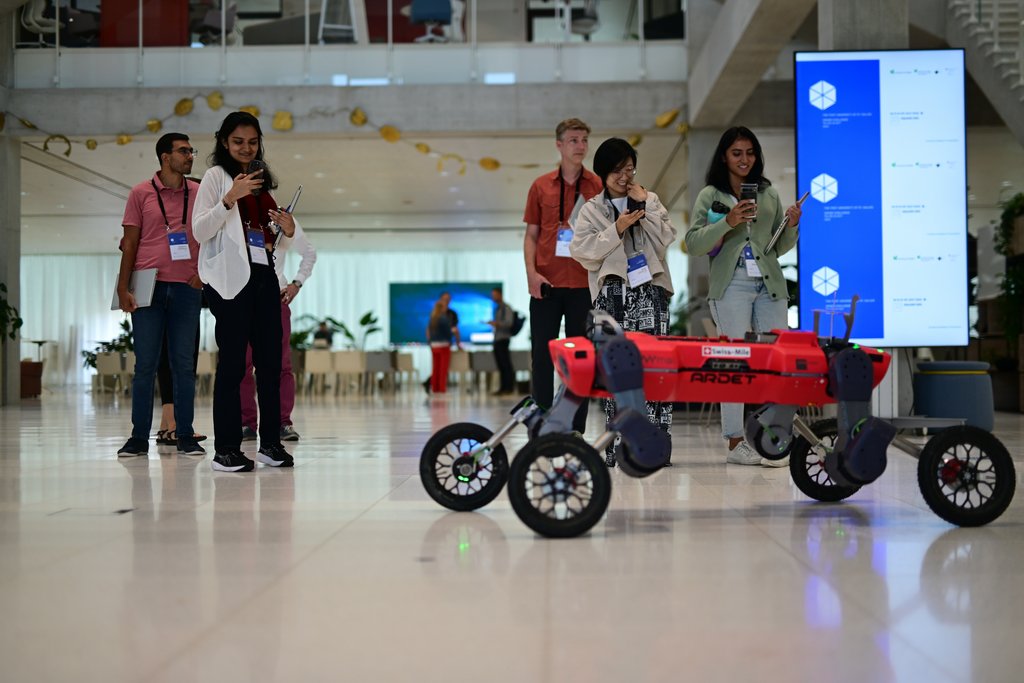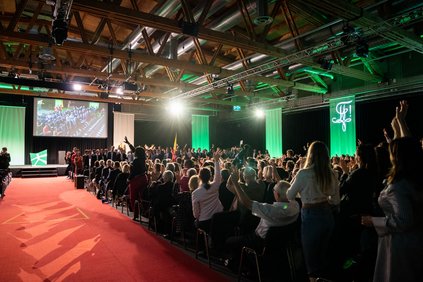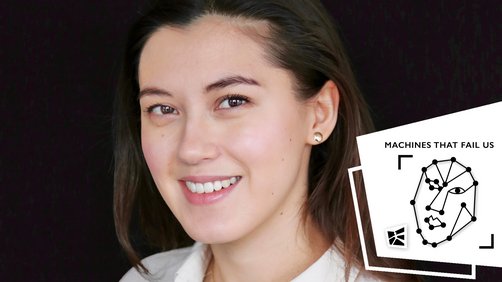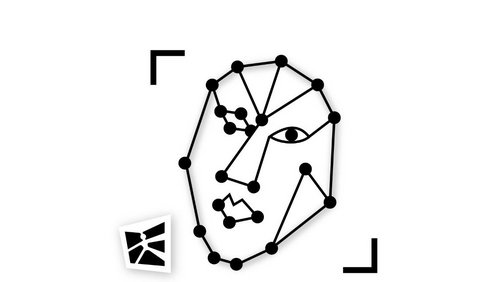Campus - 20.07.2023 - 15:24
International experts test the new EU law on artificial intelligence at the HSG
The EU is working on a regulation that will set a legal framework for artificial intelligence (AI) for the first time worldwide. At the HSG, international experts from a wide range of disciplines subjected this EU AI Act to a two-day practical test. For this purpose, they tested several concrete AI applications from companies for their compliance with the EU law.

A red robot on four wheels curves through the SQUARE. It finds its way around the expansive HSG building, avoids people and climbs stairs. The robot is controlled in the SQUARE by one of its developers, but could also be completely autonomous by means of artificial intelligence (AI). At the SQUARE, it showed itself on the occasion of the first "University of St.Gallen Grand Challenge - The EU AI Act". On 18 and 19 July, twelve multidisciplinary teams tested various AI applications to determine the extent to which they pose risks in relation to the EU's planned AI Act. They also analysed the aforementioned robot from the start-up Swiss-Mile.
EU plans world's first AI law
With its "AI Act", the EU wants to enact a regulation on the development and use of AI. The law is expected to come into force in 2026 and will be the first of its kind worldwide. It envisages imposing conditions on AI applications depending on their risk potential.
"It is to be expected that some articles of the AI Act will be difficult to apply in practice or leave too much discretion open," says Thomas Burri, HSG professor of international and European law and initiator of the Grand Challenge. "These two days have also served to identify whether and where there is a need for improvement in the draft law."
Burri and the participants took up highly topical issues with the Grand Challenge. The EU Parliament, the EU Commission and the EU member states are currently negotiating the final text of the AI Act. This so-called trialogue is likely to drag on for months. Burri will probably summarise the findings of the Grand Challenge in a report and forward it to the EU institutions.
Manufacturers of AI applications receive legal assessment
In addition to the stress test for the Act, during the two days at the SQUARE, a total of six manufacturers of products that use AI received an initial assessment of their applications from the perspective of the AI Act. "With the impending introduction of the AI Act, there are many questions that my clients have. The AI Grand Challenge helps us understand what the Act could mean for our business," said, for example, Kevin Kuhn, CEO of the Swiss startup Gopf, which offers AI-powered strategy consulting. The teams also analysed autonomous construction machines from Gravis Robotics, an autonomously patrolling security robot from Ascento Robotics and an AI application from Deutsche Telekom that detects and blocks fraudulent calls. Two applications promoted by the AI platform Merantix in Berlin (Ovom Care and Deltia AI) and an AI application from Mercedes-Benz were also judged.
"The strength of the Grand Challenge is the diversity of perspectives"
The Grand Challenge was organised as a competition: Around 30 teams applied in the pre-liminary round, 12 were invited to the two-day final at the SQUARE at the HSG. The teams were largely multinational and brought together experts from various disciplines - including, for example, lawyers, computer scientists, philosophers and ethicists, but also representatives from companies.
"The strength of the Grand Challenge is that it brings together the most diverse professional perspectives - this diversity is needed to comprehensively analyse a complex subject like AI," said Ibrahim Halfaoui, for example, who participated as an AI expert in a team from the technical testing organisation TÜV Süd. The whole world is currently looking at the EU in the development of the AI Act, so it is important to closely examine the law and what it means for companies.
"Events like this also raise awareness that this big legislative change is coming," said his team colleague Martin Saerbeck. At the moment, many companies still pay too little attention to the AI Act, he said.
"Continue the important research work on AI"
The teams each received a briefing from the manufacturer on the AI applications. By the morning of the second day, each team wrote an assessment of four applications from the perspective of the AI Act - including possible risks and the need for further clarification.
A top-class jury evaluated these assessments. It consisted of Mariana Valente, HSG profes-sor for international business law, Andreas Paulus, former judge at the German Federal Constitutional Court, Renata Jungo Brüngger, member of the board of Mercedes Benz Group AG responsible for integrity and law, Barnali Choudhury, law professor at the Canadian Osgoode Hall Law School, Gustav Fle-cke-Giammarco, partner at Seven Summits Arbitrations in Munich, Michael Waibel, professor of international law at the University of Vienna, and Viktor von Essen, lawyer with a focus on technology.
The jury selected the Spanish team "Conformity Mavericks" and the team "LegalAIzers", led by the South African University of Stellenbosch, to reach the final. There, they had to examine an AI application from Mercedes-Benz based on ChatGPT and give their assessment orally. The jury finally decided to split the prize money of 100,000 Swiss francs - to be used for further research projects - between the two teams. "With this, we also want to contribute to both teams being able to continue their work on this important topic," says jury president Andreas Paulus in the justification.
More articles from the same category
This could also be of interest to you
Discover our special topics








![[Translate to English:] KI-Regulierung in der Schweiz | unisg.ch](https://www.unisg.ch/fileadmin/_processed_/2/f/csm_KI_AdobeStock_ipopba-2000x1125_6af0ce2f92.jpg)






